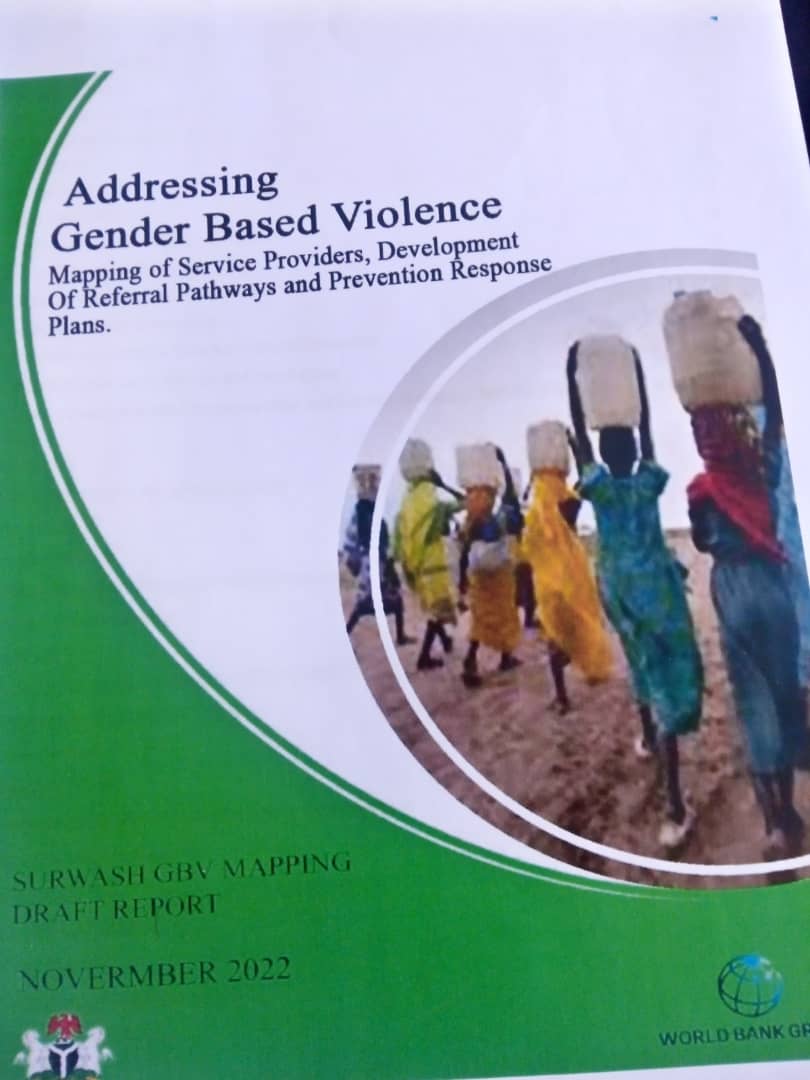
By Dennis Dateer
Stakeholders in Plateau state have validated the State’s Sustainable Urban and Rural Water supply, Sanitation and Hygiene (SURWASH) Gender Based Violence (GBV) Mapping document. The GBV seeks to mitigate potential risks of Gender Based Violence (GBV) while implementing the SURWASH programme in Plateau state.
The two-day validation exercise occurred from 13th to 14th December 2022 in Jos, the Plateau state capital. Stakeholders that participated included: the Plateau State Traditional Council, National Human Rights Commission, Water and Sanitation (WASH) Media Network Plateau state, Jos University Teaching Hospital, and The Country Women’s Association of Nigeria (COWAN).
The overview of the 121-page document was presented by the Director of the Foundation for Justice and Social Development (FOJSOD), Dr Mary Bishop, a Consultant with SURWASH.

SURWASH is a six year programme designed to support the implementation of the National Action Plan (NAP) for the Revitalization of Nigeria’s WASH sector in seven states- Delta, Ekiti, Gombe, Imo, Kaduna, Katsina, Plateau; and the Federal level.
It focuses not only on improving access to Water Supply, Sanitation and Hygiene (WASH) services in selected states, and establishing the policies, regulations, procedures, institutional frameworks, and supply chain and infrastructure management models required to improve sector performance over the long-term along critical dimensions including governance, technology and technical competency, ownership, private sector participation, Monitoring and Evaluation(M&E), access to finance, sustainability, inclusion, and resilience. SURWASH is being implemented in selected rural areas and small towns of Nigeria.
SURWASH is financed by a $700m World Bank loan and $175m government contributions. The loan agreement was signed on September 17, 2022, and implementation has commenced. It takes a hybrid approach to financing by utilizing:
- A US$640 million Program-for-Results (PforR) component for states; and
- A US$60 million Technical Assistance (TA) component for states and selected Federal institutions, which will be implemented as an Investment Programme Financing (IPF) to address critical institutional development and capacity gaps within implementing institutions.
Leave a Reply